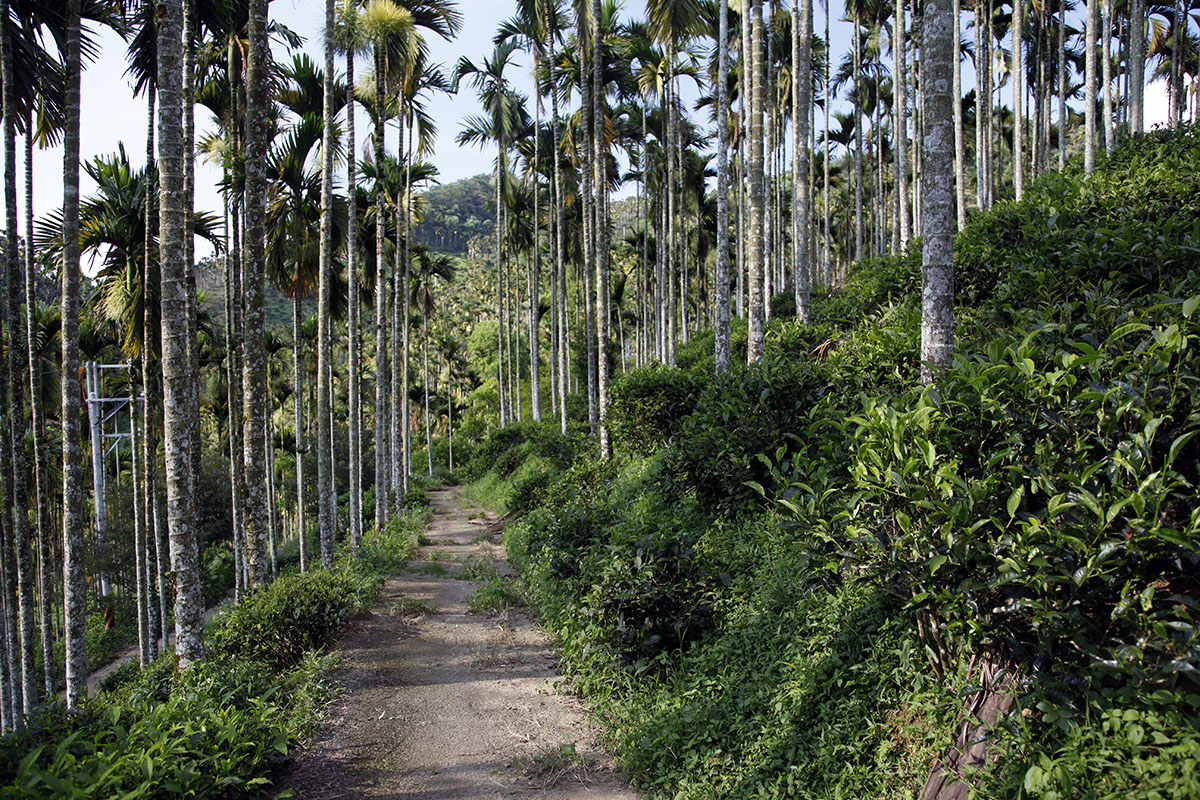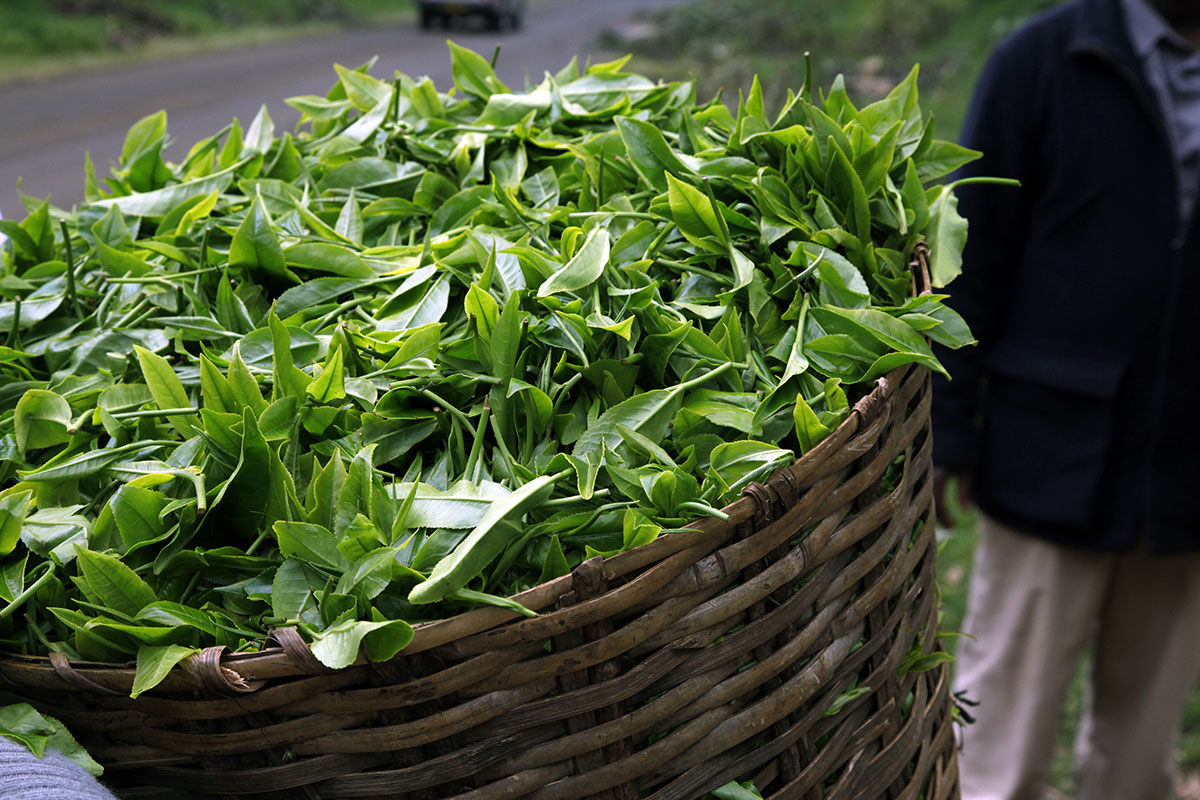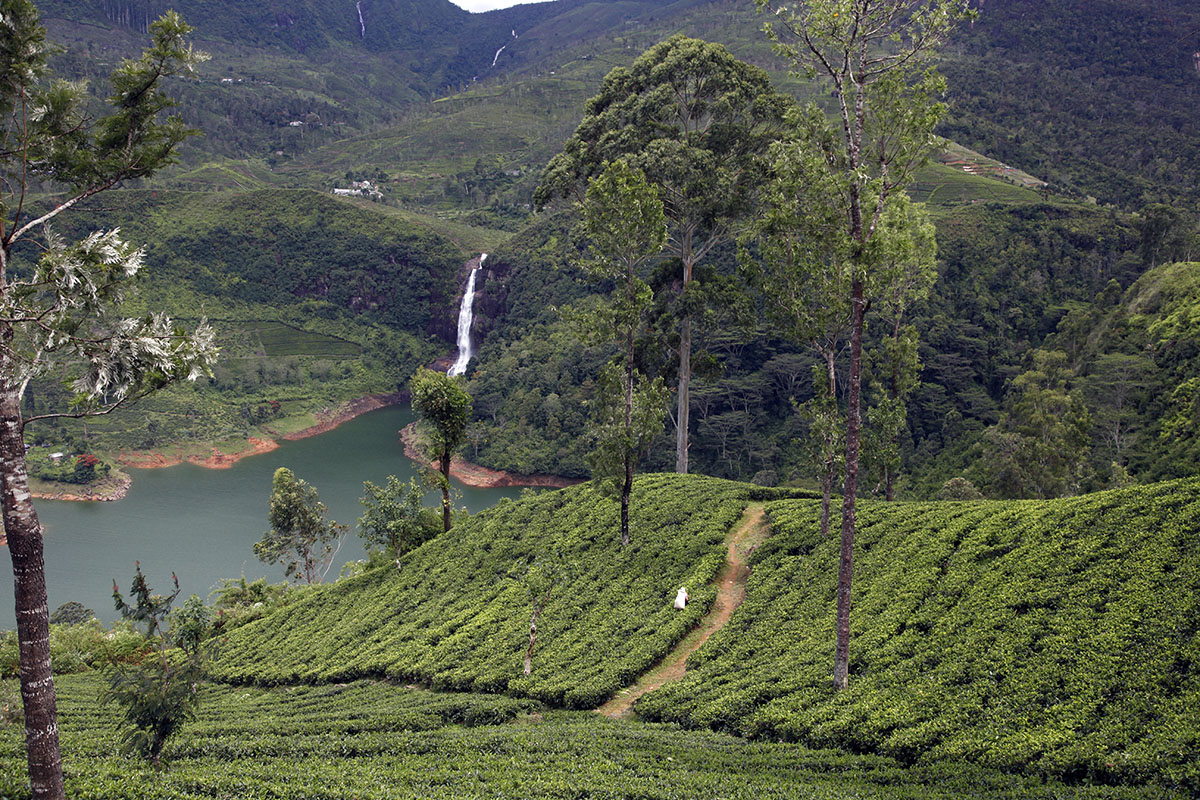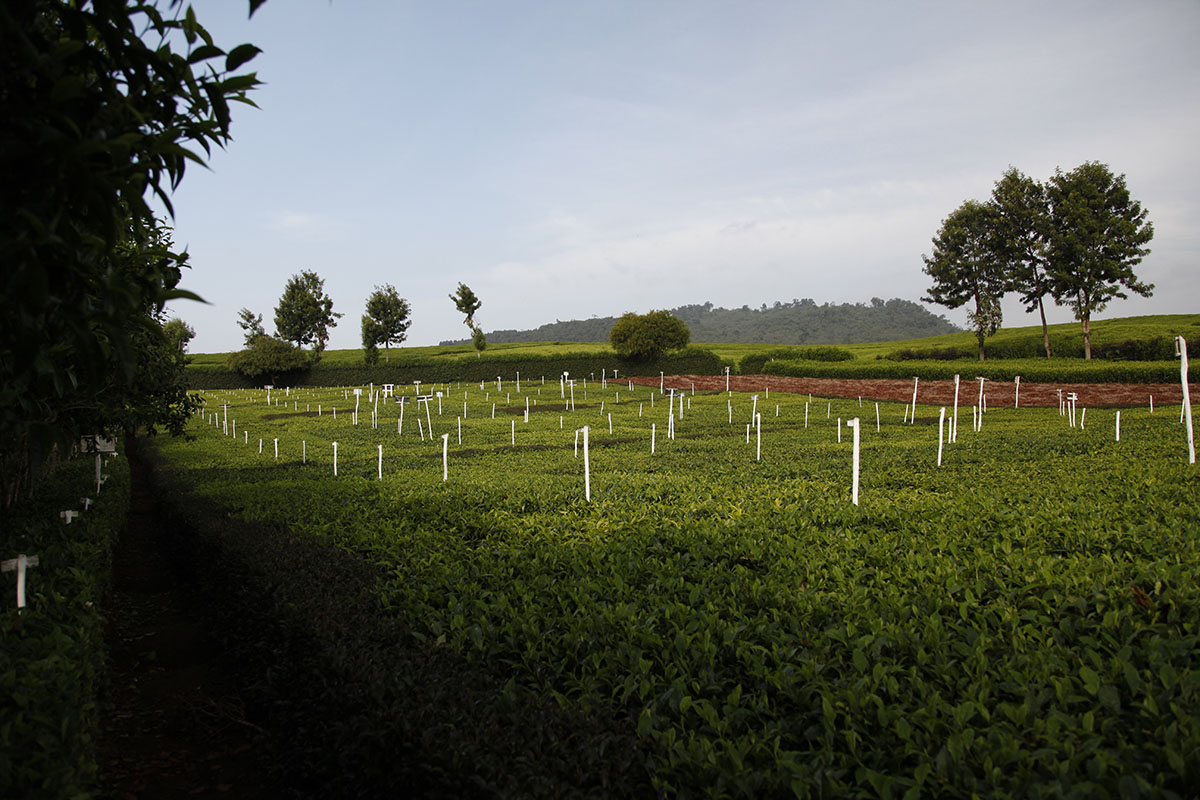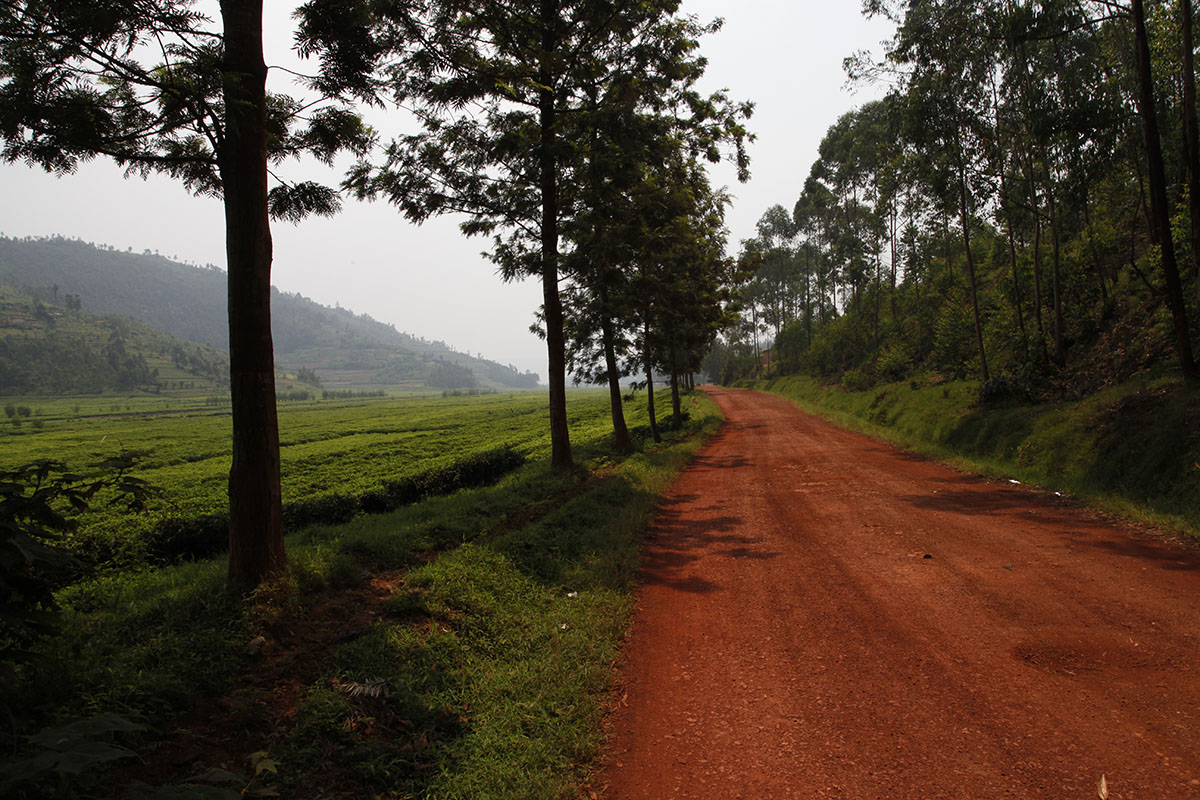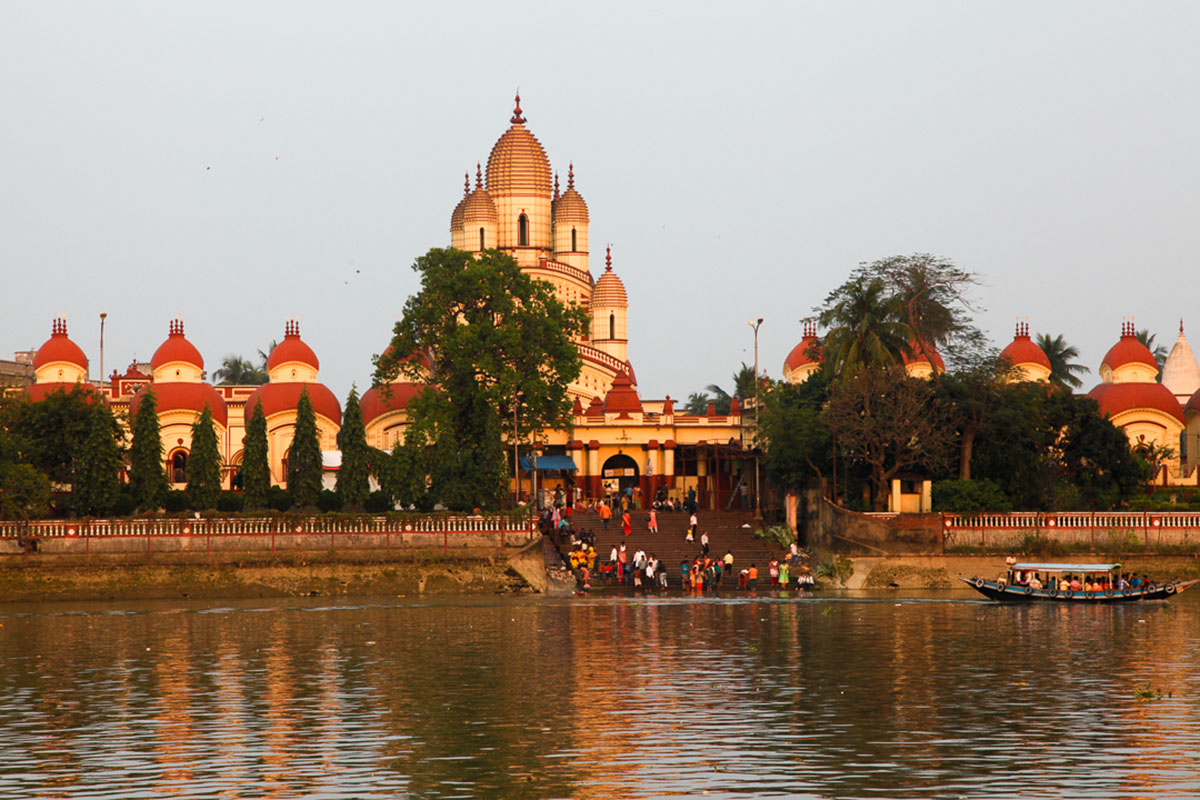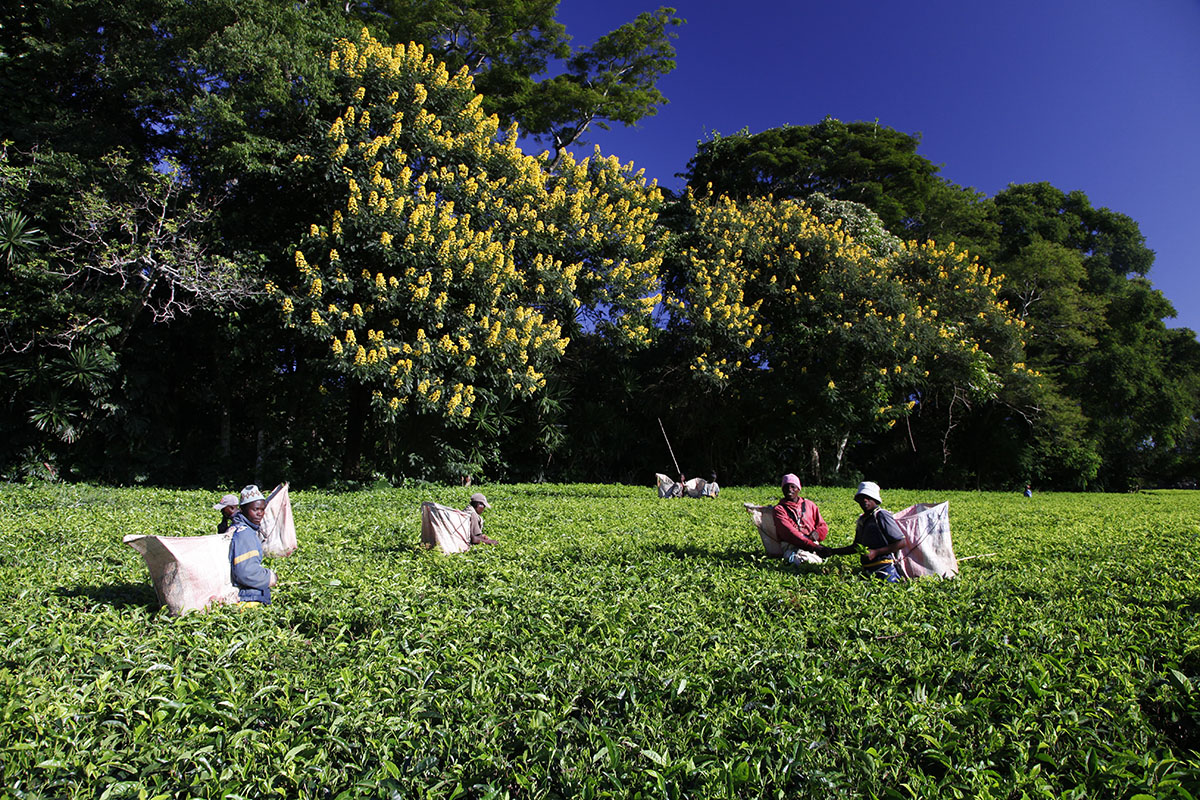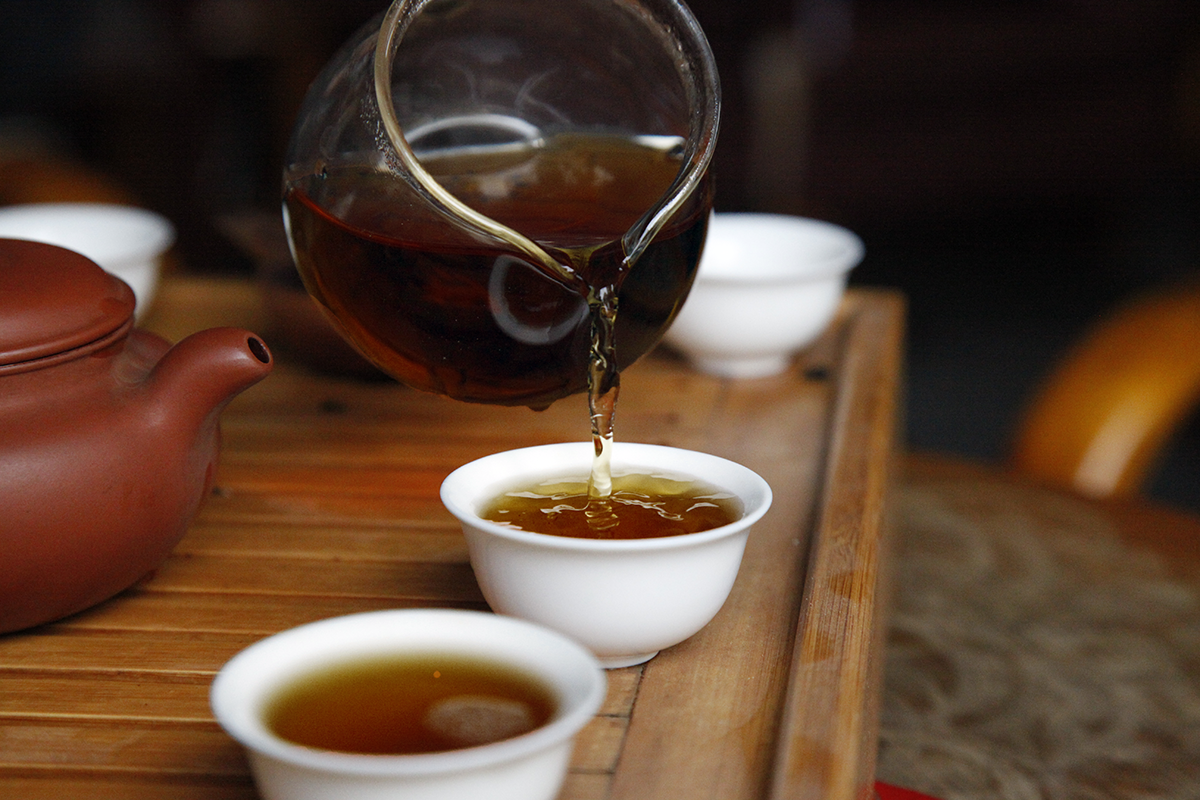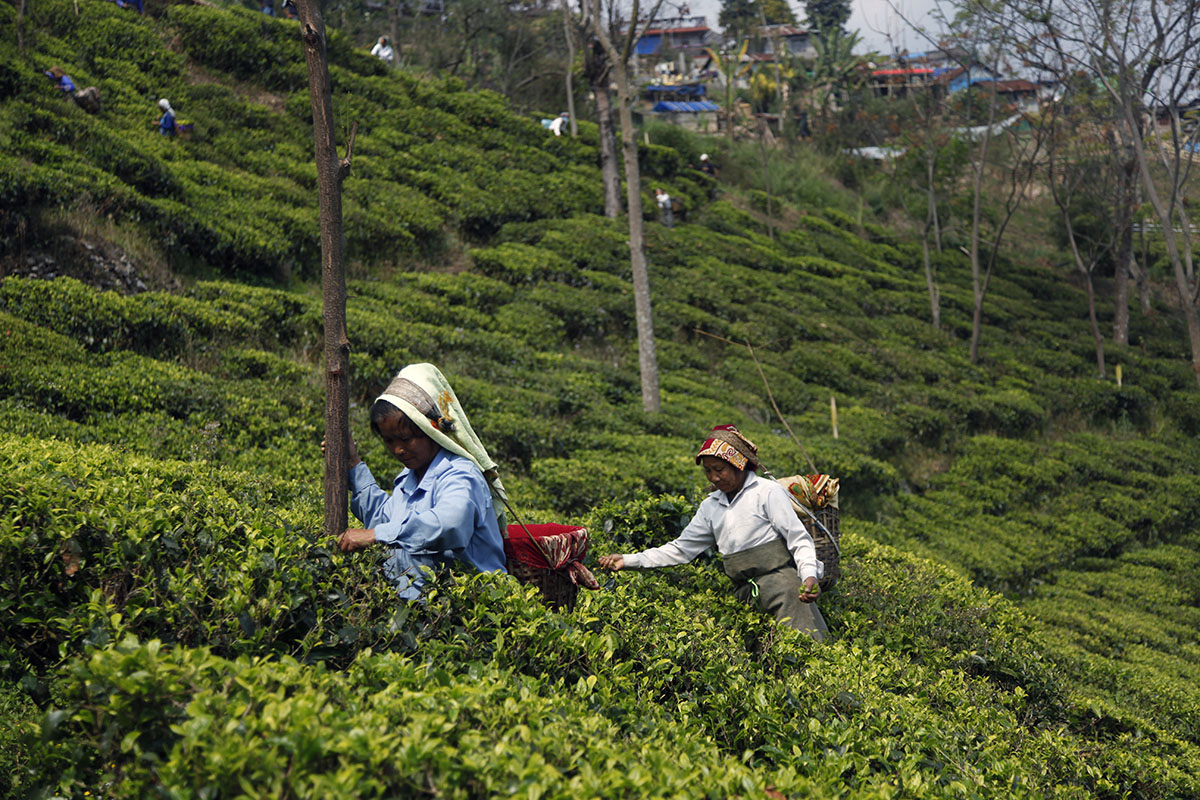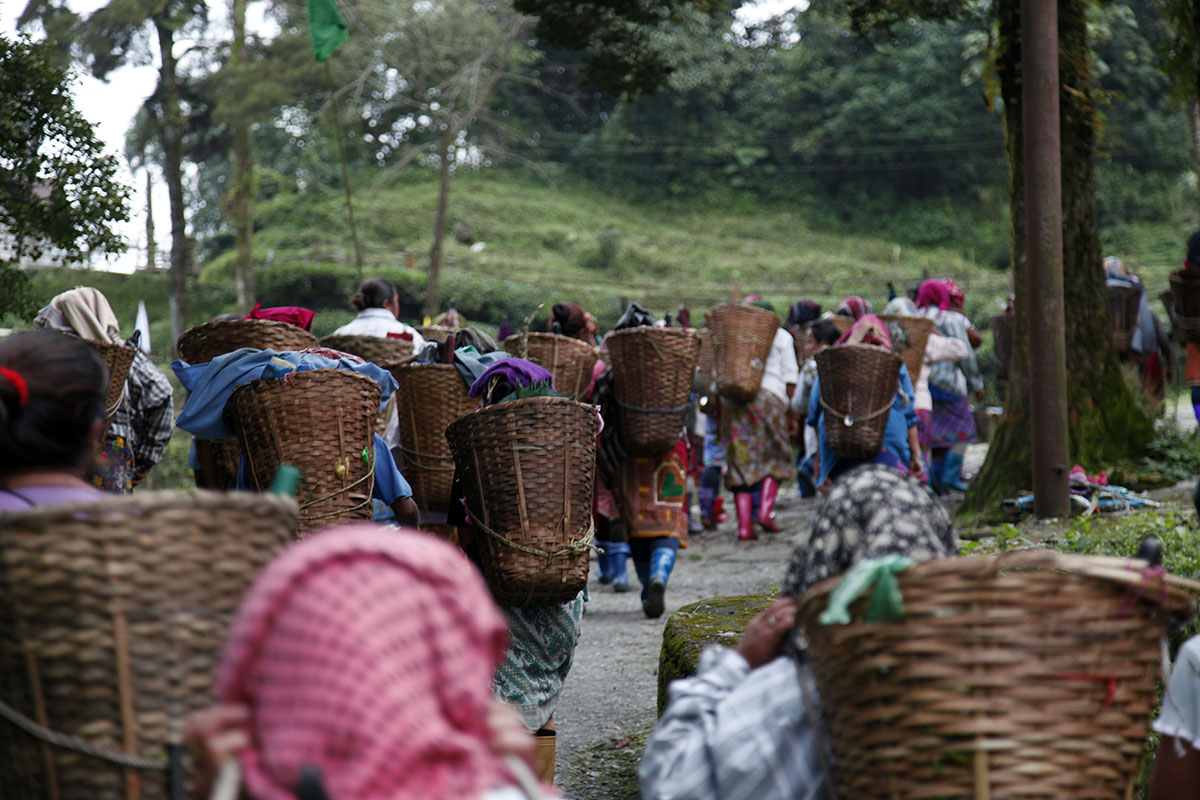Tea plants don’t like extreme heat. In the hottest regions they are grown under cover, like here, in Taiwan. This is not quite the same as shade-grown tea. It means that from time to time the delicate little shoots get a bit of respite, and the leaves are not subjected to direct sunlight throughout the day.
Worth waiting for
When I buy a freshly picked rare tea, I have just one thing in mind: to make it available to all of you who enjoy premium teas. But it’s not that straightforward. One of my conditions is that the tea must be clean. It’s common sense. When I buy a tea from a plantation or a farm with organic certification, I can depend on the certifying body and only need to carry out random checks. However, for teas without certification, as soon as they arrive in France, instead of being sent straight to the stores, they are dispatched to a specialist laboratory for analysis. This takes a week. A week longer before you can try the teas in our stores and drink them with peace of mind.
A beautiful landscape does not always produce good tea
Sri Lanka’s tea plantations are among the most beautiful in the world, but that is not always reflected in the quality. You have to learn not to be influenced by landscapes. The best teas on the island are in the south, in a less mountainous region. Here, west of Nuwara Eliya, you won’t enjoy a remarkable tea, but the views are magnificent.
Celebrating the end of lockdown in Kenya
Today, I’m taking you to the slopes of Mount Kenya. There, at nearly 2,000 metres, a well-structured, aromatic black tea is grown. Quality varies from one plantation to the next. One of the most famous tea research centres is located here, meaning that the region’s farmers benefit from valuable advice that complies with organic practices, which are very common here.
The row of white posts bearing the names of the cultivar makes this plot resemble a memorial site. We remember the victims of this pandemic and look to the future with hope.
Heading to Rwanda
How would you like to accompany me on a trip to a tea plantation in Rwanda? We’re a three-hour drive north of Kigali. Before reaching the Sorwathe plantation, situated on the high plateau, we will travel for miles along a stunning valley covered with tea plants.
The road resembles a long scar. In the evening light, this gash of earth turns shades of blood red.
Let me take you to Kolkata
There’s nothing like armchair travelling to keep us inspired as lockdown measures ease. Today, I want to take you to Kolkata, a wonderful city for tea. In the evening, Bengalis gather along the banks of the Hooghly River, a tributary of the Ganges. They perform their ablutions and dive into the sacred waters, while others wait for the ferry to take them to the other side of this majestic river that floods this sprawling city with joy.
Celebrating “déconfinement” in France
To celebrate “déconfinement” in France, I’m taking you to Malawi. I expect not many of you have been to this country in East Africa, and, from my experience, not many people can find it on a map either. The south of former Nyasaland is dominated by beautiful mountain ranges, as well as high plateaus covered with tea plants.
Today, I’m offering you a new way to travel in the post-Covid era. No need to take a plane or get a visa. There’s no time difference. You can view the photos of this blog on a big screen and travel from one country to another, even sipping a tea from the relevant country at the same time. Try it!
Teas shelter in place to develop powerful aromas
If there is one type of tea that could be described as being in “confinement”, which is our term for “lockdown” or “shelter in place” here in France, it is shade-grown teas. The best known of these is Pu Erh.
These teas generally go into confinement by being shaded for one to two months, although it can be longer. And when it comes to “deconfinement”, when you lift off the covers under which the harvested leaves have been gently fermenting, you are greeted with wonderful, powerful bouquets. In the cup, these teas develop magnificent aromas of undergrowth, cellars, mushrooms, sought-after animal notes that often evoke stables, and spices. Here’s to your “deconfinement”, whenever that may be.
Hooray!
Today, I’m only going to focus on the good news! I bought three very rare batches of Darjeeling produced this spring. Nepal has continued to produce tea during lockdown, and as soon as the French postal system is functioning again I will receive some delicious samples. In China, a pre-Qing Ming Huang Shan Mao Feng, a Lu Shan Yun Wu, a Yue Xi Cui Lan and a rare Huo Shan Huang Ya are already on their way. In Japan, after a winter that was long but relatively mild, the harvests are a little late. By mid-May I will have received all the samples and will be able to make a good selection. And to top it all, each of the teas I buy will be sent to the lab before we sell it, to ensure it complies with European standards – unless it already has French “AB” organic certification. This means we can enjoy them with peace of mind, and appreciate all their benefits.
A difficult situation in Darjeeling
One region is making me feel particularly anxious during this pandemic – Darjeeling. I was there at the beginning of March for the start of the harvests. I could see that the situation for workers was not good. Some plantations had not paid the pickers, and naturally the latter were demanding their wages for what they had already done before resuming their work. As the plantations in question refused to comply, justifying their decision with the fact that they were losing money and were therefore unable to pay out, the leaves were not harvested in a significant number of gardens.
It is difficult to know exactly which plantations in Darjeeling are profitable, and which are not. The issue has arisen repeatedly over the years. Many planters agree that it is not easy to make money, despite the low wages and the high prices of tea. Knowing that spring is the season when the teas attract the highest prices, the fact that the workers are all having to stay at home in India, like we are here, means there is a high risk that a number of gardens will shut down.

